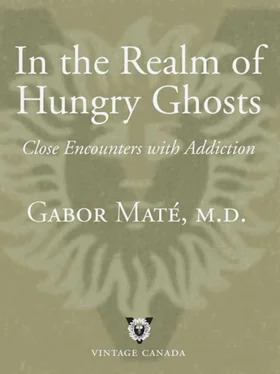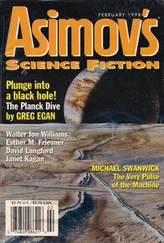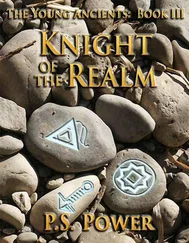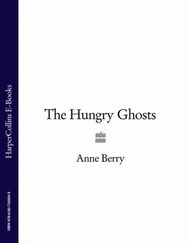Rick, the father, was magnificent. Celia left hospital the day after delivery—her need to use overcame her determination to mother her newborn—but in a completely unprecedented break with policy, Rick was allowed to stay as an inpatient at the maternity ward. Greatly supported by hospital staff, he bottle-fed and nurtured the baby, bonding with her twenty-four hours a day for two weeks before taking her to his home. The nurses attending this father-infant pairing were astounded by his gentleness, love and devotion to his daughter.
Hostile and drug-addled, Celia was barred from visiting by court order. She was grief-stricken and infuriated. She believed she had been wilfully displaced in her newborn’s affections. “It’s my fucking baby,” she screamed in my office, “my own little daughter. They’ve robbed me of the most precious thing in my life!”
December 2005
Rick drops in for a quick visit. I ask about his and Celia’s child.
“She’s in foster care right now,” Rick says. “She came with me for a while, but then the home situation deteriorated because of the drug users in that house. They relapsed. And I relapsed with the alcohol, so they took the baby away. They got a child protection order.” His shoulders tremble as he attempts to stifle his weeping. Then he looks up. “I saw her last month. I’m in the works of getting a new place for myself and I plan to take parenting groups and alcohol and drug counselling and everything. So far I’m doing pretty good.”
January 2006
Celia is here for her monthly methadone script. The infant, now six months old, has been in a foster home. Celia is still dreaming about regaining custody of her daughter and of building a family life. But she’s not capable of giving up cocaine.
“As much as you love your baby,” I say to her yet again, “and as much as you want to love her, on crack you’re not fit to be a mother. You yourself once said that you don’t get the best of a person when there’s an addiction. The child needs the best of you, needs you to be emotionally stable and present. Her sense of security depends on it. Her brain development thrives on it. You are no parent when you’re controlled by your addiction. Don’t you understand that?”
My voice is strained and cold; I can feel the tension in my throat. I’m angry with this woman. I’m trying force on her a truth that, as a workaholic doctor and in other ways, too, I tend to ignore in my own life.
Celia just stares her sullen, hard stare. I’m not telling her anything she hasn’t told herself already.

As a human drama, this story does not have a happy finale—at least, not if we want our stories to have clear-cut beginnings and endings. Yet in the larger scheme, I choose to see a triumph in it: a demonstration of how life seeks life, how love yearns for love and how the divine spark that burns within us all continues to glow, even if it is unable to blaze into full, open flame.
What will happen to this infant, this being of infinite possibility? Given her dire beginnings, she may well lead a life of limitless sorrow—but she does not need to be defined by those beginnings. It depends on how well our world can nurture her. Perhaps our world will provide just enough loving refuge—enough “shelter from the storm” as Dylan has sung—so the baby, unlike her mother, can come to know herself as something other than her own worst enemy.
CHAPTER 7

Beethoven’s Birth Room
Little do I know it, but Ralph and I are about to have an engaging historical debate at this, our first meeting. A thin, tall, middle-aged man with sagging cheeks, he limps into my office, leaning on a cane. Much of his scalp is shaved, an inexpert home salon job with uneven patches and razor nicks. A makeshift mohawk of dyed jet-black hair adorns the crown of his head. The Hitler moustache under his nose is no idle fashion statement as our conversation will soon reveal.
The purpose of this visit is for me to gather his medical history, prescribe medications and complete the welfare form that will entitle Ralph to a monthly dietary supplement. His left ankle, injured in an industrial accident, subsequently developed arthritis, and his drug habit sabotaged proper medical treatment. His pain needs are legitimate, and despite his substance dependence, I will not withhold morphine. In any case, stimulants are Ralph’s drugs of choice, cocaine being chief among them.
I’ll soon come to know Ralph as one of the most intellectually gifted people I have ever met. He is also profoundly sad—a lost poetic soul with a hopeless, unrequited longing for human connection. Although his wide-ranging but undisciplined intellect is captive to whatever thought or emotion happens to possess it in the moment, he also wields a sharp, self-mocking wit. He indulges in highly aggressive and even violent behaviours when he’s under the influence of the uppers he uses. “I’m a schizo-affective, obsessive-compulsive, hyperactive paranoid delusional depressive with bipolar tendencies superimposed on antisocial personality disorder, and I also suffer from hallucinatory states triggered by drugs and especially by the hickey on my neck,” he proclaims by way of introduction. “I’ve been given all those diagnoses by one psychiatrist or another,” he goes on to explain. “I’ve seen many.”
As for the dietary supplement, Ralph arrives with all the angles covered. “I need fresh meat, vegetables and fish, bottled water and vitamins. I have hepatitis C and diabetes.”
The greater the number of medical conditions a person has, the greater the monetary support he receives. Addicts, who may spend a hundred dollars or more daily on their illicit drugs and who often miss health-related appointments, rarely fail to come in when it’s time to have their papers filled out for the monthly twenty, forty or fifty bucks they receive for dietary support. I dutifully complete these forms, but with mixed feelings, because I know where the money will end up. There must be a better way, I think, to keep these malnourished people properly fed. To set up an alternative system we would need compassion, imagination and flexibility—qualities our social apparatus does not readily extend to the hardcore drug addict.
“Also, I need a low-sodium diet,” says Ralph.
“Why?”
“I don’t eat salt. I don’t like salt. I always buy butter without salt…And what’s dysphagia?” he asks, glancing at the list of supplement-approved conditions.
“From the Greek phag, to eat,” I explain. “Dysphagia means difficulty swallowing.”
“Oh, yeah, I have trouble swallowing. And I must have a gluten-free diet…”
“I can’t do all this. I don’t have any medical proof that you have diabetes, dysphagia or any salt-or gluten-related problem.”
Ralph’s rapid-fire, mumbled growl makes for a challenging listening experience. I can’t make out the beginnings of his next phrase, which ends with “Rich American tourists laugh at us…American Jews…”
“American what?”
“American Jews.”
I’m surprised at this turn in the conversation.
“What about them?”
“They laugh at us. They’re so fuckin’ malicious…eating the whole fuckin’ world.”
“American Jews are?…You’re talking to a Canadian Jew.”
“Hungarian Jew, I heard.” Ralph’s cloudy eyes emit a malevolent glimmer, and his glum frown turns into a smirk.
“Canadian and Hungarian Jew,” I concede.
“Hungarian Jew,” Ralph insists. “ Arbeit macht frei …Heh, heh…do you remember what that means?” *6
Читать дальше














